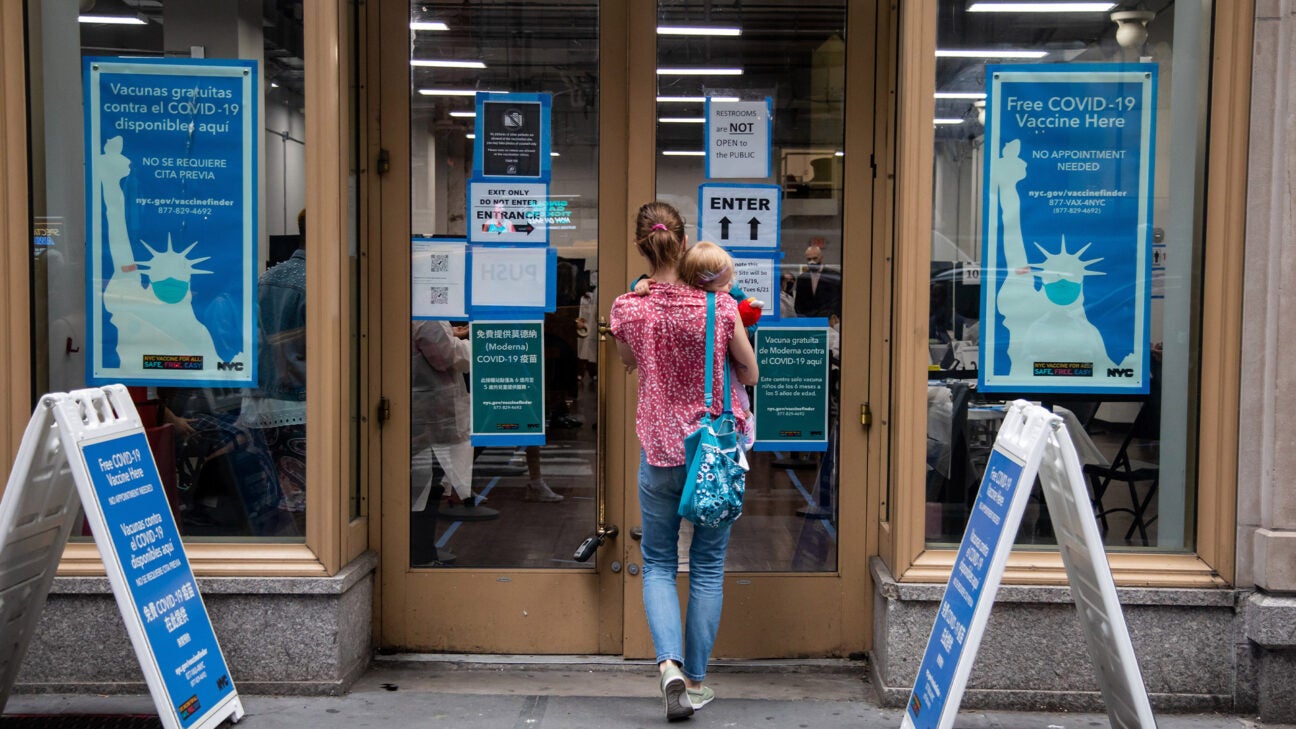
- An advisory panel has unanimously voted to add the COVID-19 vaccine to the list of routine immunizations for kids as young as 6 months.
- The CDC will decide later whether or not to take the panel’s recommendation.
- The immunization schedule is meant to help guide physicians in determining when to administer important vaccinations for both children and adults.
On October 20, the Advisory Committee on Immunization Practices (ACIP) voted unanimously to include COVID-19 vaccine on the list of routine immunizations for adults and children 6 months and older.
“It’s important to note that there are no changes in COVID-19 vaccine policy, and today’s action simply helps streamline clinical guidance for healthcare providers by including all currently licensed, authorized and routinely recommended vaccines in one document,” the ACIP, which is an advisory committee for the U.S. Centers of Disease Control and Prevention, said in a statement.
ACIP is an advisory committee for the U.S. Centers of Disease Control and Prevention (CDC.) Despite the ACIP’s recommendation, the CDC still has the authority to decide whethr or not to add the COVID-19 vaccine to the agency’s list of recommended vaccines.
What does the ACIP decision mean?
The CDC advisory committee schedule is meant to help guide physicians in determining when to administer important vaccinations for both children and adults.
“The decision by the CDC to add COVID vaccination to the schedule is not a mandate, but a recommendation for yearly vaccination,” Dr. Theodore Strange, chair of medicine, Staten Island University Hospital, part of Northwell Health in New York. explained. “It does not impact what vaccines are required for school entrance, which is controlled at the state, county, and municipal levels.”
Strange also emphasized that this immunization schedule is designed to provide the best protection for both children and adults.
“The immunization schedule is the ‘Gold Standard’ meant to help providers which vaccines should be recommended and when,” he said.
Allows insurance companies to cover vaccination costs
Extended every 90 days since declared by the Trump administration, the U.S. public health emergency might end sometime in 2023, meaning the private market could take over the distribution of COVID vaccines and treatments.
However, the ACIP’s recommendation to include the COVID-19 vaccine in the immunization schedule may help ensure continued access for the uninsured. By adding this vaccine to the immunization schedule children will likely have access to the vaccine for free through the Vaccines for Children program.
The federally-funded program provides immunizations to children of families, who may not be able to afford vaccines or who do not have health insurance.
“This is an important step,” Christopher Calandrella, DO, chair of emergency medicine, Long Island Jewish Forest Hills in Queens, New York said. “As vaccinations have played a critical role in preventing deaths and hospitalizations caused by the virus.”
A need to ramp up education efforts
“This is a very wily virus, and we’ve got to be vigilant,” Peter Pitts, Former FDA Associate Commissioner and president of the Center for Medicine in the Public Interest, told Healthline.
“We’ve got to be smarter than the virus and that means that we’ve got to be vaccinated on a regular basis – it’s the cornerstone of our strategy,” he added.
Pitts pointed out that there’s a problem with people not getting vaccinated “right now” against the current variant, and that’s not a good thing.
He emphasized the need to push awareness of how important it is to be vaccinated against the pandemic virus.
“I think the CDC needs to go beyond putting it on the schedule, and they really need to start ramping up the education effort about why it’s important not just right now for a younger age cohort, but for everybody on an annual basis,” Pitts said.
Few Americans getting COVID-19 booster shots
According to the most current CDC data, less than half of Americans have gotten their first booster shot.
A Kaiser Family Foundation (KFF) poll finds only 19% of parents of children aged 6 months through 4 years old report that their child has been vaccinated for COVID-19.
Pitts blames White House messaging about the pandemic.
“You know, on Monday the president says the pandemic is over, then on Tuesday he authorizes a COVID-19 emergency – there are no consistent messages coming out of the White House,” he said.
Pitts said he’s not surprised that people have decided to do nothing.
“Short of strong, consistent leadership, people are going to default to the most common denominator – which is nothing,” he said.
The bottom line
The CDC’s advisory panel recently approved the inclusion of the COVID-19 vaccine in the immunization schedule for children for children as young as 6 months.
Experts say that this doesn’t mean the vaccine will be mandated for anyone in the U.S. But it will make it easier for people to have the vaccine covered by their insurance or to access the vaccine for free through certain programs.
Key CDC Panel Recommends COVID-19 Vaccine Added to Regular Childhood Immunization Plan
Source: Pinoy Lang Sakalam



0 (mga) komento:
Mag-post ng isang Komento